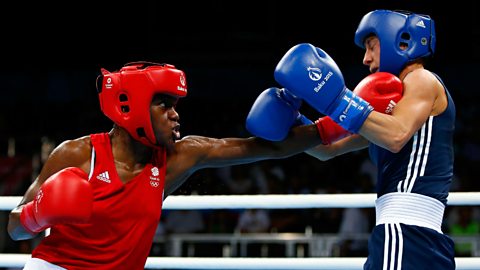Other factors affecting participation in sport
Opportunity and access
For people to participate in sport and physical activity, facilities, sessions and resources need to be available in the area. If there is no hockey pitch or club, no-one has the opportunity to play hockey. If there is a dry ski slope in the town, this provides the opportunity to ski.
Transport to facilities is a consideration – can they be reached on foot or by bike? Is public transport available (buses or trains)? Is there easy parking for cars?
Disabled participants need specialised access, changing arrangements and equipment.
Discrimination
Discrimination is the unfair treatment of different categories of people on the grounds of race, gender, age or disability.
An example of race discrimination would be the case of Mark McCammon in 2012 who claimed that he and other black players at Gillingham FC were treated less favourably than white players regarding punishments for missing training, medical treatment and pay cuts following relegation.
An example of gender discrimination would be a woman not being allowed to join a golf club because it is a male-only club.
An example of age discrimination would be a club not allowing anyone under the age of 25 to join.
An example of disability discrimination would be not letting a wheelchair tennis player play at a court.
Environment and climate
The environment, climate and weather of the country or area can affect a person's participation in sports and physical activities.
The climate may be too hot or cold to participate in some activities and some countries experience heat waves which make any activity difficult. The humidity might be too high to participate safely or the windy/rainy season may interrupt participation.
Some activities require a specific climate or environment. For example, skiing requires snow, so is more popular in the mountainous regions of Europe than in England.
Climate also often dictates whether an activity is indoor or outdoor, for example volleyball is usually indoor in England but outdoor in Brazil where it's warmer.
Environment also includes the area you live in and what is available locally, for example if you live near a river or lake, watersports (canoeing, sailing, kiteboarding) may be popular.
Sometimes technology is used to overcome climatic or environmental considerations, for example, snow domes and artificial waterways.
Media coverage
The media includes newspapers, magazines, books, radio and the internet, as well as television.
Media coverage can encourage participation in the following ways:
- It increases popularity and knowledge of sports and activities by covering matches and events and interviewing experts. For example, the Rugby World Cup and the London Marathon.
- It promotes exercise and a healthy lifestyle through reports and documentaries.
- It covers promotional health campaigns via public service broadcasting.
- It promotes role models and sports stars.
- Entertainment shows such as Strictly Come Dancing and Splash increase popularity and participation of some minority sports.
- Interactive simulation games and apps encourage an interest in sports which may lead to greater participation.
Media coverage can also be a negative influence:
- Minority sports are under-represented.
- Women's sport is under-represented.
- Disability sport is under-represented.
- 'Couch potato' behaviour may be encouraged by the amount of sport available. In other words, people sit and watch or play computer sport rather than take part actively.
- Bad publicity (violence, drug abuse, racism) can decrease participation in some sports.
Role models
Role models are people whose actions are emulated by others; people look up to them and want to copy what they do. Successful sportspeople in the media spotlight often become role models, inspiring others to take up sport.
Some sports or groups do not have many role models, for example Asian footballers, women's rugby.
Here are some sports role models:

Nicola Adams
Women's boxing
Nicola was the first ever women's boxing Olympic Champion in 2012
Ade Adepitan
Wheelchair basketball
TV presenter
Rebecca Adlington
Swimming
Won four Olympic medals, two of them gold
David Beckham
Football
Won 20 major trophies including one Champions League title and six Premier League titles
Jessica Ennis-Hill
Athletics
Olympic champion 2012; World champion 2015

Mo Farah
Athletics
Olympic, European and World Champion at 5000 m and 10,000 m